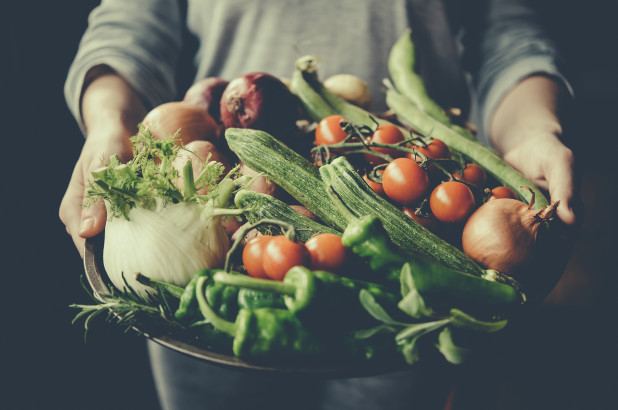New cancer study looks at value of organic food consumption.
A new study published in JAMA Internal Medicine online suggests eating organic food could lower the risk of cancer.
In the study titled the “Association of Frequency of Organic Food Consumption With Cancer Risk,” authors said a population-based cohort study of 68,946 French adults found a significant reduction in the risk of cancer was observed among high consumers of organic food.
The meaning of the findings, according to researchers, is that a higher frequency of organic food consumption was associated with a reduced risk of cancer.
“If the findings are confirmed, promoting organic food consumption in the general population could be a promising preventive strategy against cancer,” the abstract said.
The study asked participants to report their consumption frequency of labeled organic foods (never, occasionally, or most of the time), from which an organic food score was then computed (range, 0-32 points).
Among 68,946 participants (78% female; mean age at baseline, 44.2 years), 1,340 first incident cancer cases were identified during follow-up, with the most prevalent being 459 breast cancers, 180 prostate cancers, 135 skin cancers, 99 colorectal cancers, 47 non-Hodgkin lymphomas, and 15 other lymphomas. High organic food scores were inversely associated with the overall risk of cancer, study authors said.
The Organic Center, a research and education organization managed by the Organic Trade Association, said in a statement that the study was the first of its scale to find to find such clear support of organic foods.
“Eating a healthy diet should include an organic component. Indeed, This study shows that eating organic food could be a critical tool for fighting an epidemic that is diagnosed in new patients over a million times per year and is estimated to kill over 600,000 people in 2018 alone,” The Organic Center said.
An invited guest commentary on the study, also published Oct. 22 on JAMA Internal Medicine website and headlined “Organic Foods for Cancer Prevention—Worth the Investment?” said the new study shows participants with the highest frequency of organic food consumption had a 25% lower risk of being diagnosed as having cancer during follow-up compared with those with the lowest frequency.
“These consistent results indicate that the association between pesticide exposure at levels observed in the general population and lymphoma risk is worth further study,” the commentary said, noting that another study found that organic food consumption was linked to a slightly increased breast cancer risk.
“While the study by Baudry has several notable strengths, such as its large sample size, prospective design, and modest loss to follow-up, it also has significant weaknesses, which mandate careful interpretation of the findings,” the guest commentary said.
A particular weakness, the commentary said, is the fact that the organic food questionnaire was not validated. “It is unclear what the intended exposure, organic food consumption, was actually measuring,” the author said.
The commentary said more research is needed.
While the link between cancer risk and organic food intake is still uncertain, the commentary said there is compelling evidence that improving other factors, such as body weight, physical activity, and diet, can lower cancer risk.
“For overall health, current evidence indicates that the benefits of consuming conventionally grown produce are likely to outweigh the possible risks from pesticide exposure,” the commentary said.
The commentary said concerns over pesticide risks should not discourage intake of conventional fruits and vegetables, especially because organic produce is often expensive and inaccessible to many populations.
“While more research is needed to examine the role of organic foods in cancer prevention, current recommendations should continue to focus on modifiable risk factors that are backed by solid evidence and encourage healthy dietary patterns, including higher intake of fruits and vegetables, whether conventional or organic,” the commentary said.















